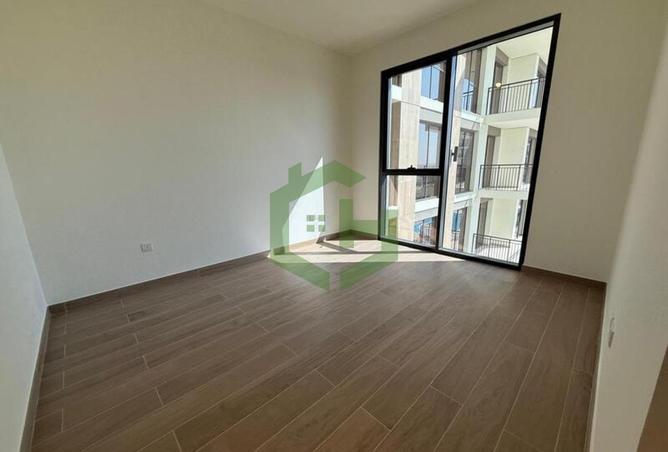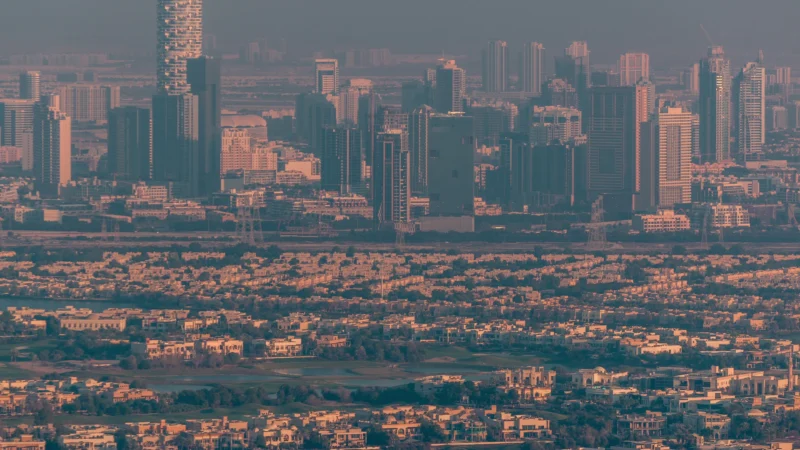Learning how to downsize your home isn’t just about moving into a smaller space – it’s about unlocking value and simplifying life. For many homeowners, selling a larger property and transitioning to a smaller one can be a smart financial decision.
Whether you’re approaching retirement or seeking a lifestyle reset, a well-timed, well-planned downsizing can free up equity, reduce costs, and even generate long-term profit.
- Strategically timing your sale
- Enhancing your home’s value before selling
- Understanding tax advantages and capital gains
- Calculating your cost basis and potential profit
- Choosing your next home wisely
- Decluttering and selling what you don’t need
- Planning your long-term financial strategy
- Minimising moving and transition costs
- Key takeaways
- FAQs

Strategically timing your sale
The first step to a profitable downsize is knowing when to sell.
Sell in the right market
Selling in a seller’s market – when demand exceeds supply – often leads to higher selling prices and faster transactions. In Dubai, market activity typically peaks between March and June, coinciding with strong demand from both local and overseas investors.
According to market trends, listings in spring often attract the highest number of buyer enquiries, while summer can see slower movement due to travel and seasonal shifts.
Pairing your sale with a period of low mortgage interest rates and high expat demand can further increase your chances of achieving a premium price.
Enhancing your home’s value before selling
Beyond minor upgrades, homeowners can also focus on energy efficiency and smart-home appeal – features increasingly influencing buyer decisions. Installing smart thermostats, energy-saving lighting, and solar panels can make your listing more attractive while reducing operational costs.
Modern buyers in the UAE and globally often compare sustainability features before making a commitment, especially in urban areas such as Dubai Hills Estate and Arabian Ranches.
These communities demonstrate how newer developments incorporate efficient layouts, landscaped surroundings, and eco-friendly design – all of which contribute to enhancing long-term property value.
Many Dubai developers now integrate these features as standard – for example, communities by Emaar and Aldar offer energy-efficient homes that align with the UAE’s Net Zero 2050 vision.
Focus on high-ROI improvements
According to Property Finder and Knight Frank reports, first impressions carry the most weight in Dubai’s competitive property market. Simple, well-chosen updates can make a big difference when it’s time to sell.
Top ways to add instant value
- Fresh paint: Light, neutral colours make rooms look larger and brighter.
- Landscaping: Trim hedges, refresh lawns, and add greenery to boost curb appeal.
- Modern lighting: Replace outdated fixtures and ensure consistent lighting throughout.
- Updated façades: A clean exterior or repainted front door instantly lifts appeal.
- Minor kitchen refresh: Change cabinet handles, faucets, or backsplashes for a contemporary touch.
Community insights
| Area | Typical Buyer Appeal | What Works Best |
| Arabian Ranches | Family homes with outdoor space | Well-kept gardens and upgraded façades |
| Dubai Hills Estate | Modern, design-driven buyers | Sleek interiors and smart-home features |
| Jumeirah Village Circle (JVC) | Budget-conscious investors | Functional layouts and good lighting |
Tip:
Small design touches – framed mirrors, accent walls, and tidy outdoor corners –often photograph well and attract more clicks on property listings.
Understanding property sale costs in Dubai
One of the major advantages of selling property in Dubai is the absence of capital gains or income tax on real estate transactions. Still, sellers should budget for a few standard fees that apply to all property transfers.
Main costs to consider
- Dubai Land Department (DLD) fee: 4% of the property value, usually shared equally between buyer and seller.
- Agency commission: Up to 2% of the sale price, depending on the agreement.
- Administrative fees: Typically AED 500–5,000 for title deed issuance and registration, varying by property type.
- Mortgage release or clearance fee: If applicable, charged by the bank when settling an existing loan.
Typical cost breakdown
| Expense Type | Rate / Range | Who Pays |
| DLD Transfer Fee | 4% of sale value | Usually split 50/50 between buyer and seller |
| Agency Commission | Up to 2% of the sale value | Seller (standard) |
| Admin / Registration Fees | AED 500 – 5,000 | Seller |
| Mortgage Clearance (if any) | AED 1,000 – 2,000 | Seller |
Insight:
Even with these fees, Dubai remains one of the most cost-efficient real estate markets globally, allowing sellers to retain a larger share of their profit compared to cities like London, New York, or Hong Kong.

Calculating your potential profit
While Dubai property owners don’t pay tax on capital gains, calculating your total investment helps you understand your real profit. Consider the property’s original purchase price, renovation and maintenance costs, agency commission, and any mortgage settlement fees.
Subtract these from the final sale price to determine your net proceeds. This gives a clear picture of your return on investment (ROI) and helps you plan your next purchase or reinvestment effectively.
Choosing your next home wisely
When planning your next move, it’s worth considering lifestyle priorities alongside finances. Waterfront areas like Dubai Marina or Yas Island offer smaller, high-yield apartments that combine convenience and leisure, ideal for those seeking both comfort and rental potential.
Meanwhile, master-planned communities such as Al Reef and Jumeirah Village Circle offer affordable villas and townhouses with low maintenance costs and family-friendly amenities. This balance between space, community, and investment potential often determines how successful your downsize truly becomes.
Move to a smaller, lower-cost home
A smaller home means lower utility bills, reduced service charges, and less upkeep – key advantages in Dubai, where annual maintenance and community fees can vary widely by area.
Switching from a villa to an apartment can reduce annual expenses by 20–30%, depending on location.
Moreover, for many sellers, downsizing frees up hundreds of thousands of dirhams in equity that can be redirected toward investments, business ventures, or long-term savings.
Consider location and amenities
Relocating to an area with lower living costs or smaller service charges can further increase savings.
Some homeowners move from central districts like Downtown Dubai to more affordable communities such as Jumeirah Village Circle or Dubailand.
Apartments for Rent in Dubailand
-

Apartment
Listed 1 month ago
125,000 AED/year
Brand New | Luxury Living | Prime Location
Holland Gardens, Town Square, Dubai
2
2
1,193 sqft
-

Apartment
Listed 2 weeks ago
50,000 AED/year
Brand New | Unfurnished | Spacious
The Regent, Town Square, Dubai
studio
1
343 sqft
-

Apartment
Listed 2 weeks ago
65,000 AED/year
WELL LOCATED | COMFORTABLE 1 BED ROOM | VACANT
Liva, Town Square, Dubai
1
1
477 sqft
-

Apartment
Listed 3 weeks ago
80,000 AED/year
BRIGHT & AIRY 1 BEDROOM | WHITE GOODS INCLUDED
Holland Gardens, Town Square, Dubai
1
1
661 sqft
-

Apartment
Listed 2 months ago
125,000 AED/year
ELEGANT || KITCHEN APPLIANCES || BOULEVARD VIEW
Holland Gardens, Town Square, Dubai
2
2
1,194 sqft
-

Apartment
Listed 2 months ago
130,000 AED/year
AVAILABLE IN DECEMBER | BRAND NEW | WHITE GOODS
Holland Gardens, Town Square, Dubai
2
2
1,060 sqft
-

Apartment
Listed 2 weeks ago
75,000 AED/year
High floor | Ready | Partial Boulevard View
Holland Gardens, Town Square, Dubai
1
1
638 sqft
-

Apartment
Listed 2 weeks ago
64,888 AED/year
Brand New | Ready to Move | Prime Location
Holland Gardens, Town Square, Dubai
studio
1
419 sqft
-

Apartment
Listed 2 weeks ago
150,000 AED/year
Vacant | Unfurnished | Community Living
Parkside, Town Square, Dubai
3
3
2,139 sqft
-

Apartment
Listed 3 weeks ago
75,000 AED/year
Modern Luxury Finish | Available Jan | High Floor
Holland Gardens, Town Square, Dubai
1
1
636 sqft
Those nearing retirement may prefer quieter areas near healthcare facilities or leisure destinations – for example, Al Raha Beach in Abu Dhabi or Al Zorah in Ajman.

Decluttering and selling what you don’t need
Downsizing is also a chance to simplify and earn some extra cash.
Sell unneeded furniture, collectables, and décor online through platforms like Facebook Marketplace or Dubizzle, or visit secondhand stores that specialise in quality home items.
Donating usable goods to local charities or community drives is another way to give them a second life while supporting those in need.
Planning your long-term financial strategy
After the sale, how you manage your proceeds can shape your financial future. For sellers in Dubai, the city’s tax-free environment and dynamic property market offer excellent opportunities for reinvestment.
Reinvest your profit wisely
Financial experts in the UAE often recommend reinvesting a portion of your released equity into diversified, income-generating assets. This approach helps sustain long-term financial stability while keeping your capital active.
Smart reinvestment options:
- Rental income properties – Buy-to-let apartments in high-demand areas such as Dubai Marina, Business Bay, or Downtown Dubai.
- Real estate funds or REITs – A growing segment in the UAE offering stable, long-term returns with lower risk.
- Savings and investment plans – Local banks and financial institutions offer both Sharia-compliant and international investment accounts tailored to different goals.
If you’re unsure about your next move, consider renting temporarily while exploring different communities before committing to your next purchase.
Minimising moving and transition costs
Smaller moves usually mean lower expenses – but costs can still add up in Dubai.
Tips to manage your moving costs:
- Compare quotes – Get estimates from licensed moving companies and check for off-peak weekday rates.
- Plan ahead – Declutter early to reduce packing time and overall volume.
- DIY where possible – If your move is within the same city, hire a small truck service or enlist help from friends and family.
Downsizing is more than a financial shift – it’s also a lifestyle transition. Careful planning helps ensure the process feels smooth and rewarding.
Key takeaways
Downsizing your home in Dubai can unlock meaningful financial and lifestyle benefits when planned carefully. Selling during peak seasons, making high-ROI upgrades, and understanding local transaction costs help maximise your profit.
Choosing a smaller property with lower service charges and manageable upkeep ensures long-term savings. With thoughtful reinvestment and planning, downsizing can offer more than reduced space – it can bring financial freedom, flexibility, and peace of mind in a market built for opportunity.
FAQs
Fresh paint, landscaping, upgraded lighting, and modern kitchen finishes deliver the highest visual impact and ROI.
No, there are not. The UAE imposes no capital gains or income tax on property transactions. Sellers only need to account for standard Dubai Land Department (DLD) and agency fees.
This depends on your goals. Buying a smaller property continues building equity, while renting offers flexibility to explore different areas before purchasing again.
The main benefits are the lower maintenance costs, smaller service fees, reduced utilities, and the ability to reinvest released equity into other income-generating assets or savings plans.




